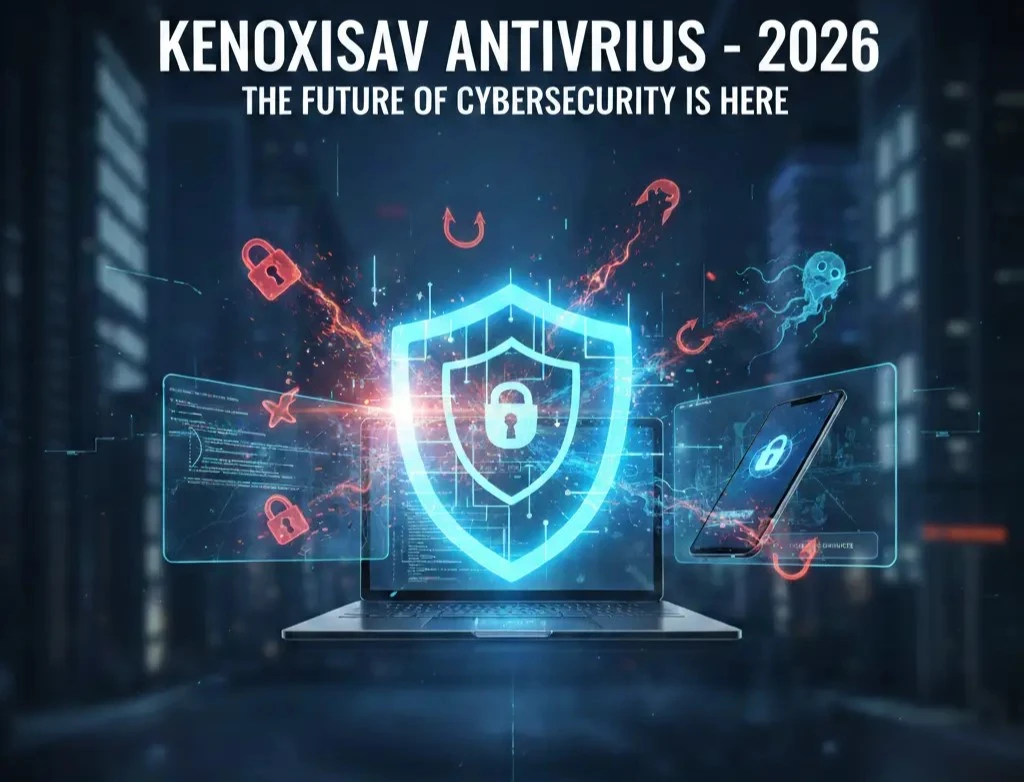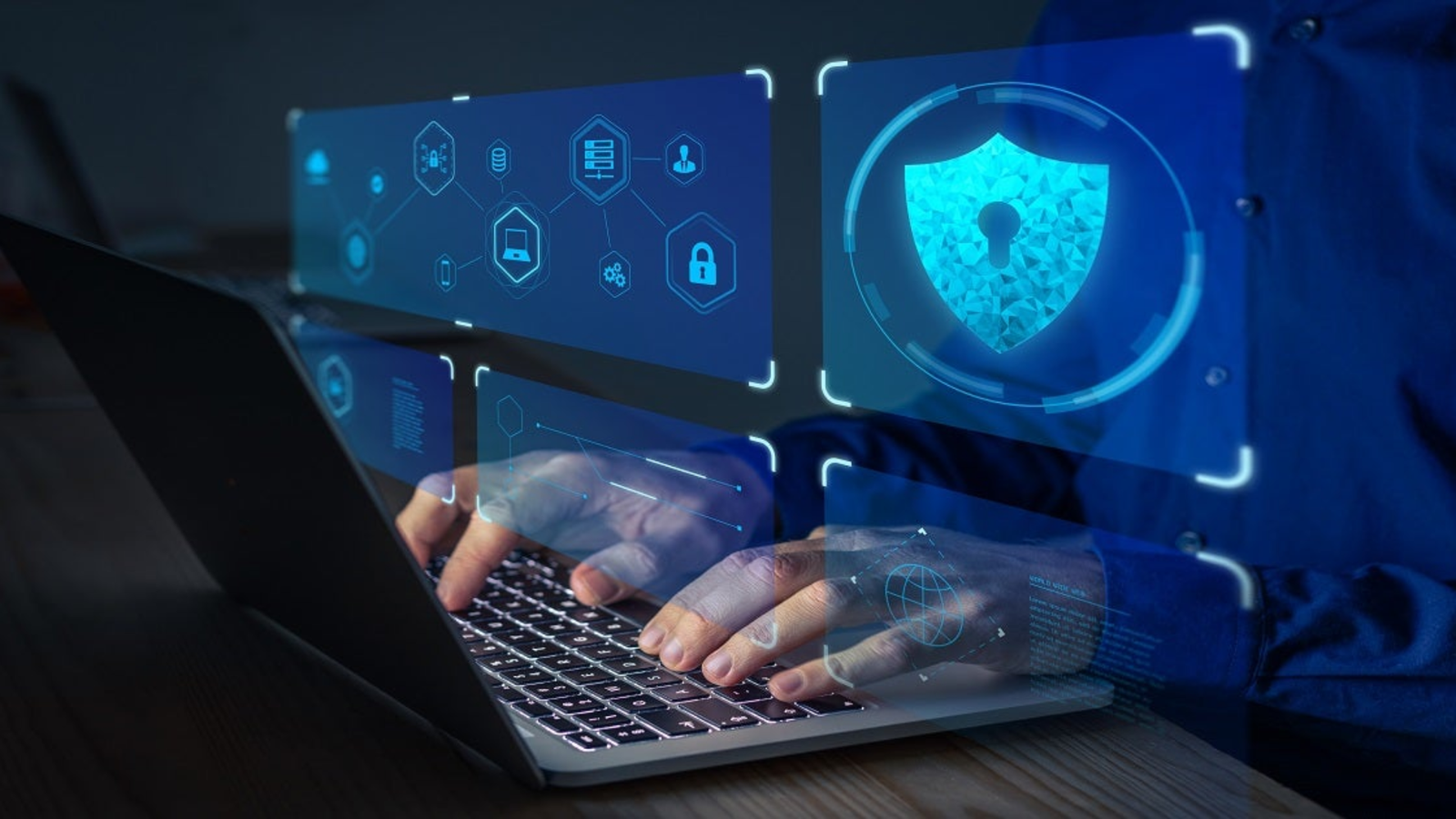Best Antivirus for Computer Protection in 2026: How to Stay Safe from Hackers
Kenoxisav | 16 Feb 2026

In 2026, cybercriminals are more advanced than ever. Hackers are no longer just targeting large companies — they are actively attacking everyday computer users.
If you use your computer for banking, online shopping, office work, or social media, your data has value.
And hackers know it.
This is why strong antivirus protection is essential for complete computer protection in 2026.
Why Hackers Target Regular Computer Users
Many people believe:
“I’m not important enough to be hacked.”
That is one of the biggest myths in cybersecurity.
Hackers steal:
- Email accounts
- Saved passwords
- Credit card details
- Social media logins
- Work credentials
- Personal photos
This data is sold on the dark web or used for scams and identity theft.
Even one unprotected computer can become an easy target.
How Hackers Attack Computers in 2026
Modern cyber attacks are smarter and AI-powered.
Hackers use:
Phishing Emails
Fake delivery messages, bank alerts, or account verification emails.
Ransomware
Malware that locks your files and demands payment.
Keyloggers
Software that records everything you type — including passwords.
Fake Websites
Clone websites that look identical to real login pages.
Exploiting Outdated Software
Hackers scan for devices that haven’t updated their system or antivirus.
Most attacks happen because of one click on a malicious link.
How Antivirus Protects Your Computer from Hackers
The best antivirus for computer protection in 2026 does much more than scan for viruses.
Modern antivirus software includes:
Real-Time Threat Protection
Stops malware before it runs.
Ransomware Defense
Prevents files from being encrypted.
Anti-Phishing Protection
Blocks fake websites and scam links.
Firewall & Network Monitoring
Prevents unauthorized remote access.
Webcam & Microphone Protection
Stops hackers from spying.
Automatic Security Updates
Closes security gaps before hackers exploit them.
With advanced antivirus protection, suspicious behavior is blocked instantly.
Why Free or Basic Antivirus Is Not Enough in 2026
Free antivirus software may provide basic scanning, but it often lacks:
- Advanced ransomware protection
- AI-based detection
- Identity theft alerts
- Dark web monitoring
- Multi-device protection
Hackers design malware to bypass outdated or weak protection systems.
For complete computer protection in 2026, stronger security is required.
How to Protect Your Computer from Hackers in 2026
Follow these essential steps:
- Use advanced antivirus software with real-time protection
- Enable automatic updates
- Avoid clicking unknown links
- Use strong, unique passwords
- Enable firewall protection
- Protect both PC and mobile devices
Cybersecurity is no longer optional — it’s necessary.
Internal Resource
If you’re comparing options, you can also read our detailed guide on
best antivirus software in 2026 to choose the right protection for your needs.
Final Thoughts
Hackers depend on users being careless, unprotected, or using outdated antivirus software.
But in 2026, the right antivirus solution provides:
- Real-time computer protection
- Anti-hacking security
- Ransomware defense
- Phishing detection
- Multi-device coverage
Protect your computer before it becomes a target.
Because in today’s digital world, prevention is always better than recovery.
Frequently Asked Questions
Q1. Can antivirus really stop hackers in 2026?
Yes. Modern antivirus software uses AI-based detection, real-time monitoring, and behavior analysis to block hacking attempts, ransomware, and phishing attacks before damage occurs.
Q2. What is the best way to protect my computer from hackers?
Use advanced antivirus software, enable automatic updates, avoid suspicious links, and use strong passwords with firewall protection enabled.
Q3. Is free antivirus enough for computer protection in 2026?
Free antivirus offers basic protection, but it often lacks advanced ransomware defense, phishing protection, and real-time AI-based threat detection.
Q4. Do hackers target personal computers?
Yes. Hackers often target individuals because they are easier to exploit. Personal data like emails, passwords, and banking details have high value.

.png)


.png)

.png)

.png)